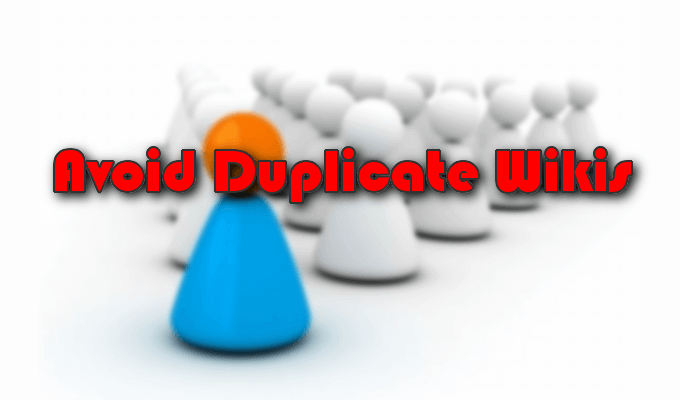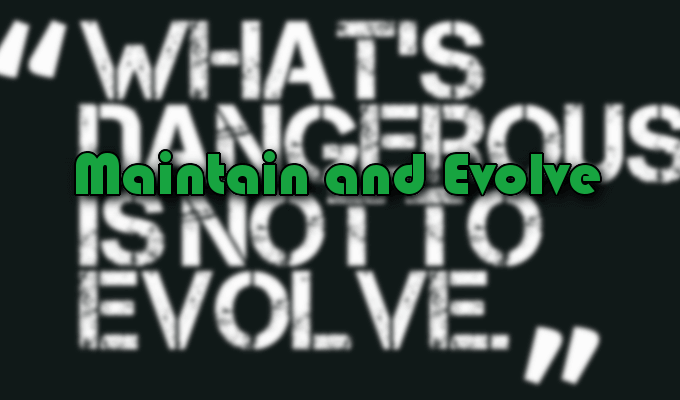Boasting over 530 million readers each month, it’s not hard to understand why it currently sits in the top ten of the most popular websites in the world. But what exactly is a Wiki and how does one become successful? A Wiki is a computer-based tool used for communicating and collaborating with others within a centrally-located, content management system. Coined from the Hawaiian term for “quick,” a Wiki allows teams and organizations to collect vast amounts of knowledge, gathered from several varying resources, and redistribute said knowledge onto a site for all to see. Readers can then enjoy all content on a specific topic and, if granted permission, edit and add their own knowledge on the subject in a collaborative effort. Any recorded errors in the content can be quickly fixed and kept up-to-date.
Things To Consider Before Creating Your Own Wiki
Creating a wiki isn’t as difficult as one might think. An idea, internet access, and hosting for the site is really all you need. However, anyone hoping to create a successful one will need to understand a few things prior to getting started.
Is A Wiki the Right Tool for the Job?
A wiki makes it easy for teams to collaborate on projects, share notes and ideas, and contribute resources. They are ideal for capturing information that is continuously evolving but can also be used to share notes and compare thoughts based on multiple perspectives. To ensure that a wiki is the best tool for your needs you’ll want to establish a solid answer to the following questions:
Will this undertaking be strictly solo or will the project involve a team?Will the team benefit from making the information provided in the wiki accessible to a larger audience?Will you need to collaborate on this project in the future?Is the project static or will it continue to evolve as more information is discovered?
For any of these questions left unanswered or uncertain, a wiki may not be the best project for your needs. A wiki must evolve as they are not beneficial as a static document. For those, I would suggest a blog. A wiki, in order to be successful, should also have a team behind it. Opening it up to the public can only benefit the project in the long run as updated information can come at any time from anywhere. If your intent is to share sensitive knowledge between colleagues, a wiki is definitely not what you’re looking for. Figure out the purpose for your wiki, establish answers to the above questions, and only then decide if it’s the right thing for you and your team or organization.
Software & Hosting Options
Once the purpose of your wiki is clear, you can decide on the software and hosting options. There are many at your disposal and the purpose of the wiki can help you identify the right options moving forward. Low budget teams may prefer the free approach with the likes of Wikia, WikiDot, and MediaWiki. These particular hosting sites allow you to build a wiki from the ground up. Paid services, like Central Desktop and Same Page, will give you the tools and templates needed to get started right away. There’s a site you can use, WikiMatrix, that will help you compare your options to find the best wiki that will fit your needs. For privately hosted wikis, some sites will usually offer up software, like TikiWiki (free) and Twiki (paid, one-time fee) that can help you get started.
Scout Other Wikis
Imitation may be the greatest form of flattery. Unfortunately, in the documentation business, that can also be considered plagiarism. When discovering your wiki’s purpose, take a gander at other wikis already online. You should be focused on being the only source of information on your given topic. What you’ll want to look for are duplicates by checking every wiki hosting site. It would be rather pointless to create an entirely “new” wiki on a subject already being covered. A wiki was meant for collaboration so if you have more information to provide than that which is found on an already established site, ask to be let in on the project. If you like the look of another’s wiki setup, don’t be afraid to copy the styles and templates featured there. Content copying is plagiarism, duplicating the appearance is not. Just be sure that your wiki stays consistent in both content and appearance to not confuse your audience.
Make Sure The Team Is Up To Par
The members familiar with wikis will likely be eager to share their knowledge in helping grow the project. Those unfamiliar may be more reluctant to chime in. Newcomers can often be put off by editing documents others have created. That, on top of the markup code used in formatting may force them into hiding. Make those members feel more comfortable by offering to train them on how to use the tools a wiki provides. Create a cheat sheet of markup characters for those having issues in formatting text. Allow the more ambivalent members to write and edit a “practice” wiki until they become more confident in their abilities. The team will be far more efficient in article creation if they learn some basic wiki syntax beforehand. This allows easy page edits without the need for any guided editors. A strong team will guarantee a strong wiki, making it much more likely to become successful.
After Creation Tips
After the wiki has been created, it would be best to have the usability and readability of the site tested. Invite a small number of users to test the ins and outs and provide feedback of your site prior to “going live”.The wiki as a whole would benefit greatly from an established policy guide. Layout the general rules for other contributors so that they have the information on how your wiki should be represented to the readers.Depending on the size of the team and contributing members, wikis can become congested with false or irrelevant information. Consider appointing one person as the curator of the wiki to cull this unnecessary information, ensure the proper information is in the right place, and prevent conflicting edits between members.Promote those members within the community who remain dedicated and active. If you find people who are enthusiastic about the work being done, you can show your appreciation by gifting them more control over the site.
Maintain & Evolve
A wiki is a live document and therefore must be maintained in order for it to evolve. Rewarding your team members and those of the collaborative community will encourage them to take ownership of the wiki and keep it up-to-date. Once you’ve created your own wiki, get the word out about your wiki to continue its upward growth. Promote it on forums, social media, YouTube, etc. This can only push more visitors to the wiki and potentially more collaborators willing to see it flourish.







